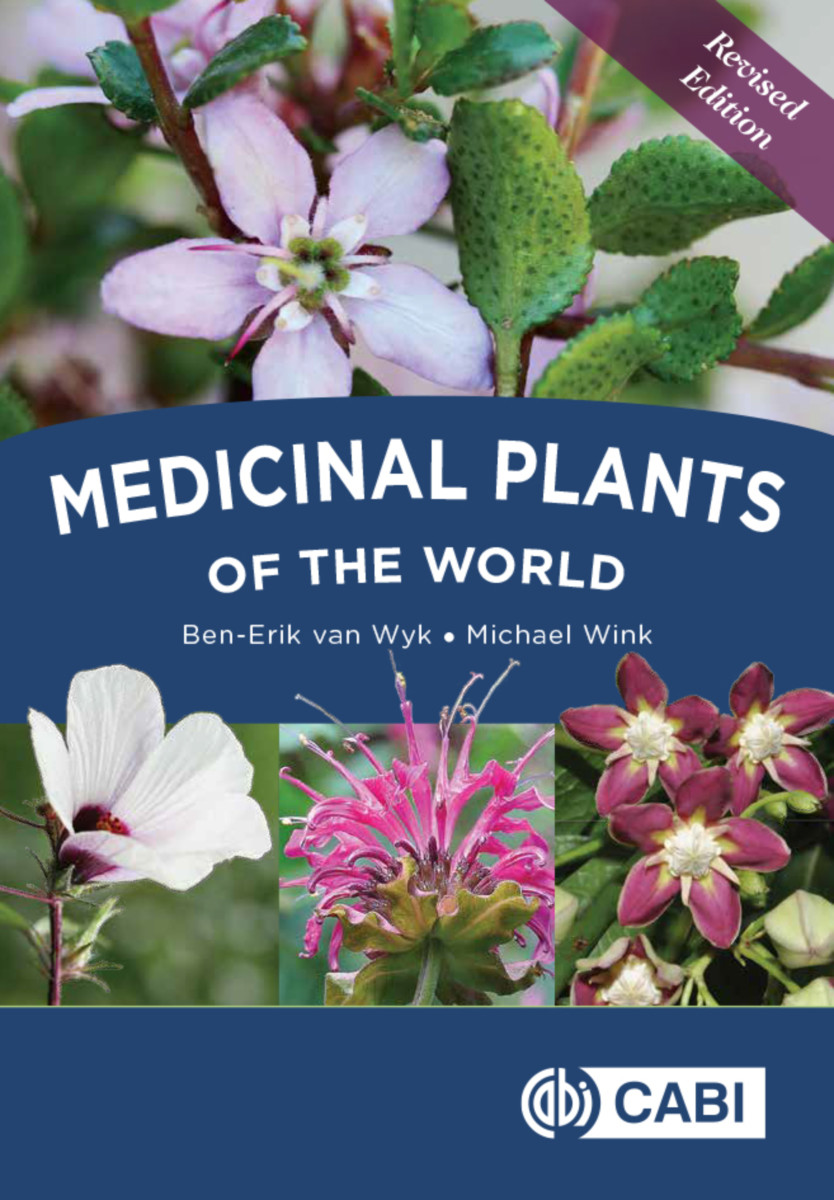Medicinal Plants of the World Revised Edition
- Publisher
CABI - Published
26th July 2017 - ISBN 9781786393258
- Language English
- Pages 520 pp.
- Size 6.625" x 9.5"
- Images color photos
Medicinal plants and plant-derived medicine are widely used in traditional cultures all over the world, and they are becoming increasingly popular in modern society as natural alternatives to synthetic chemicals. As more and more natural remedies are being commercialized, there is a need for a user-friendly reference guide to the plants and their products.
This reference gives the reader a bird's eye view of more than 350 of the best known medicinal plants of the world and their uses, in a compact, colorful, and scientifically accurate text. It provides quick answers to the most obvious questions: Where does this plant originate? What does it look like? In which culture is it traditionally used? What is it used for? Which chemical compounds does it contain? How safe is it? What is known about its pharmacological activity? What evidence is there that it is effective?
The authors also provide short overviews of the various health conditions for which medicinal plants are used and the active compounds (secondary metabolites) found in the plants and their modes of actions.
This new edition has an additional 30 plant species and many new and improved photographs. The text has been fully updated to reflect the latest regulatory status of each plant.
1: Preface
2: Introduction
3: Medicine Systems of the World
4: Plant Parts Used
5: Dosage Forms
6: Use of Medicinal Plant Products
7: Active Ingredients
8: Quality Control and Safety
9: Efficacy of Medicinal Plant Products
10: Regulation of Herbal Remedies and Phytomedicines
11: The Plants in Alphabetical Order
12: Health Disorders and Medicinal Plants
13: Overview of Secondary Metabolites and Their Effects
14: Quick Guide to Commercialized Medicinal Plants
15: Glossary
Ben-Erik van Wyk
Ben-Erik van Wyk is a Professor of Botany and holds the DST-NRF National Research Chair in Indigenous Plant Use at the University of Johannesburg, South Africa. He has a research interest in systematic botany and plant utilization.
Michael Wink
Michael Wink


